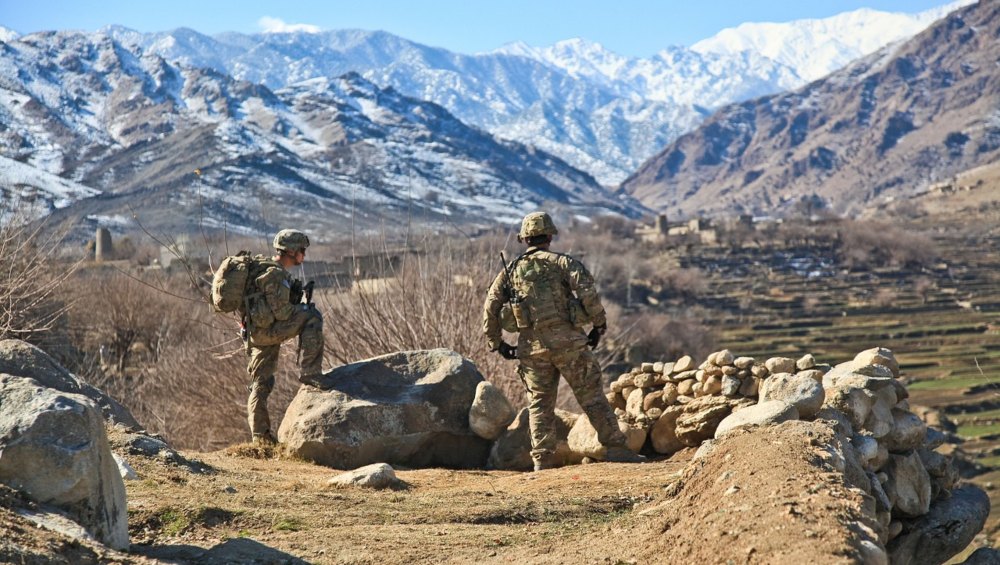
During the first Iraq War in the early 90’s, the one prompted by Iraq’s invasion of Kuwait, I heard an Iranian-American give a lecture on what we had gotten ourselves into.
Americans, he said, are a “short-memory” people and culture. We see things in a time frame of days and weeks, maybe years, but not centuries. The cultures of the Middle East, he said, were “long memory” cultures. Something that happened a century or even several centuries ago was still current.
That seemed to me, at the time, a crucial distinction and insight. It now seems relevant in light of the U.S. withdrawal and collapse of the Afghan government.
The twenty years of the war in Afghanistan were “America’s longest war.” Donald Trump labeled it “the forever war.” It was long and costly. But I suspect the Taliban saw it differently. Those twenty years weren’t, for them, long. In a conflict they construe as centuries old, twenty years is not much.
In a conflict like this, those with the long view have the advantage. That’s not to say “long memory” is always or necessarily good. It means that animosities endure and grudges get held from generation to generation. The post-WWII “Marshall Plan” was perhaps only possible for a people eager to move on.
But short memory, the desire to turn the page and move on, also has its problems. It means you don’t learn the lessons of the past. Worse, that the evils of the past, and your part in them, are denied altogether. We’re now in period of national confrontation with our past — with slavery and segregation, and with the story of native Americans. We haven’t wanted to hear those stories, to learn that history. We’ve wanted to move on, to focus on the future.
What was it that William Faulkner said? “The past isn’t dead. Why, it’s not even past.”
In discussing the collapse in Afghanistan on the PBS Newshour, Andrew Bacevich, a retired Army officer and historian, warned against hastily moving on.
“I would hope that the conversation about Afghanistan would also focus on how this failure came about. The Biden administration, what, in office for eight months doesn’t own it. Multiple administrations own it. Both parties own it. American military leaders own it.
“And I think that, before we erase the memory of the Afghanistan war — and our country does have a tendency to do that — we need to have some time of sober reflection to understand why this failure occurred.”
Bacevich echoes what that Iranian-American speaker said three decades ago now. We are a short memory people eager to focus on the future. But there’s a price to be paid for that. Will we remember any of these lessons the next time the drums of war start beating?
More from Bacevich:
“We need to look at the 20-year experience of the American war. We tried to do two things. Number one, we tried to create a legitimate government that would command the loyalty of have the Afghan people, and we tried to create effective military forces that could provide for the defense of the Afghan nation-state.
“All the evidence shows that we failed on both counts. And I think the beginning of wisdom is to understand the reality of that failure and then, yes, to do as Lisa suggested, to take seriously our responsibility to contain the fallout. And the fallout, in particular, relates to the suffering of those who supported us and the suffering of innocents who now are a victim of our failure.”
The cost to those “who supported us and the suffering of innocents who are now a victim of our failure” has to be owned and, insofar as possible at this late date, lessened. Whatever your judgment of the Afghan government, we too have a moral obligation not only to our Afghan supporters, to the innocent victims, but to Americans who lost their lives in Afghanistan and to their families.
And we also have an obligation to lengthen our own memory, to own our failure and learn from it.
Discover more from Post Alley
Subscribe to get the latest posts sent to your email.

All presidents since GW have wanted to get out of Afghanistan but did not have the political courage that Biden has.
That being said , the fubar evacuation is an example of his inability, and those he chose to advise him, to think past 2. Quit Lying – Get every one of our citizens out and he can survive politically ; don’t and the political backlash will be gruesome .